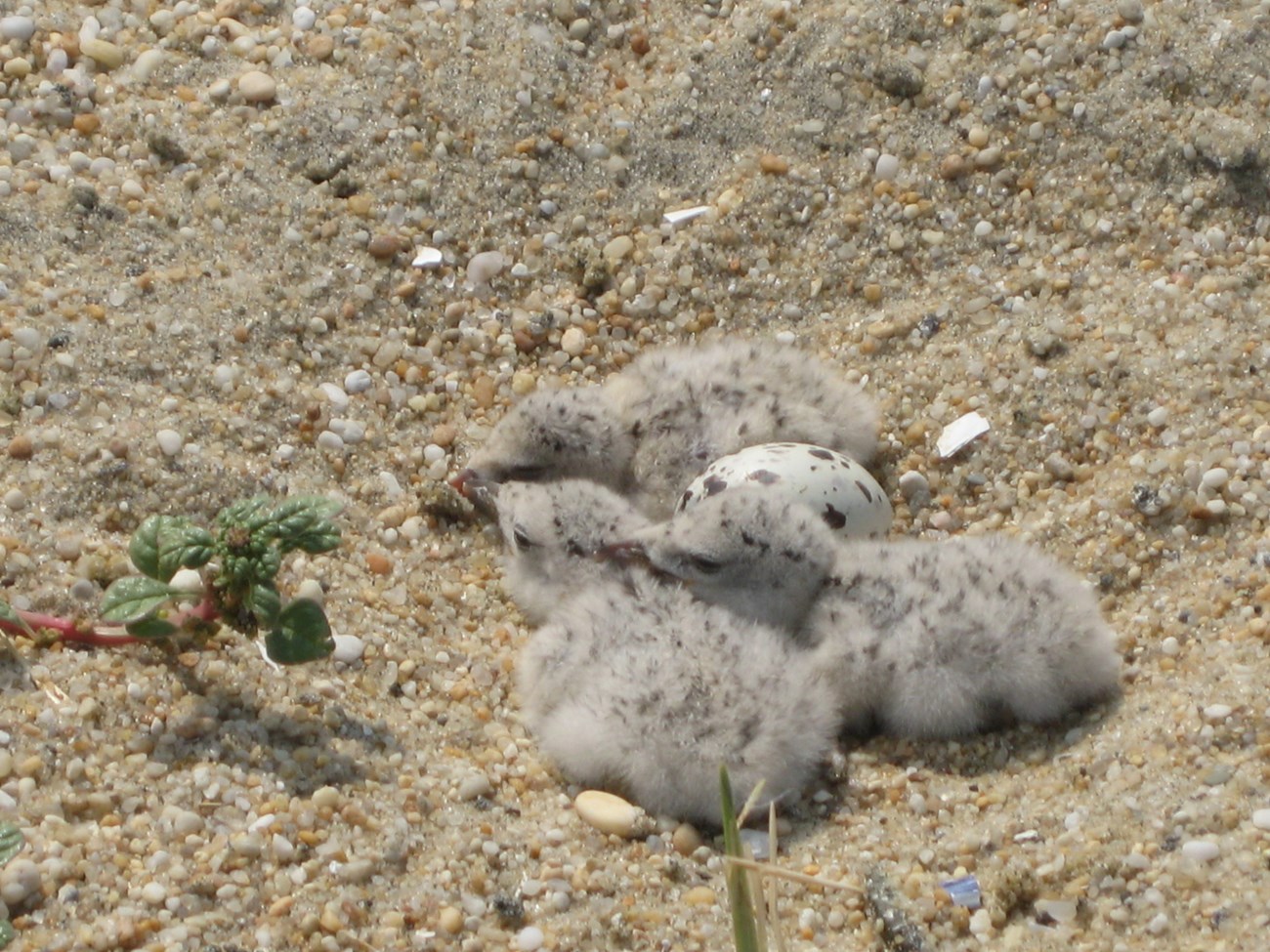
NPS Photo/JM Heuser Hidden within the dunes of Gateway's beaches dwells one of our most treasured animals -- the piping plover. With less than 8,000 piping plovers left globally, this federally threatened shorebird is an integral part of what makes this place special. 
Despite their rarity, piping plovers have maintained a large range across the eastern and central United States. Piping plovers winter in warmer southern coasts and breed along northern beaches in the summer. Their threatened status has led to the protection of beaches and dunes along stretches of shoreline, preserving habitat for a variety of other coastal species. Development, pets, and climate change threaten this fragile environment — making the future of this critically important shorebird all the more uncertain. But the shared stewardship of our visitors has helped lead to a population increase of plovers in our area. Protecting piping ploversDogs are not allowed on ocean beaches at Sandy Hook between March 15 through September 15. Dogs are not allowed on the ocean beaches at Jacob Riis Park, Fort Tilden, Breezy Point Tip and at the bayside of Breezy Point between March 15 through September 15.
|
Last updated: April 3, 2023
